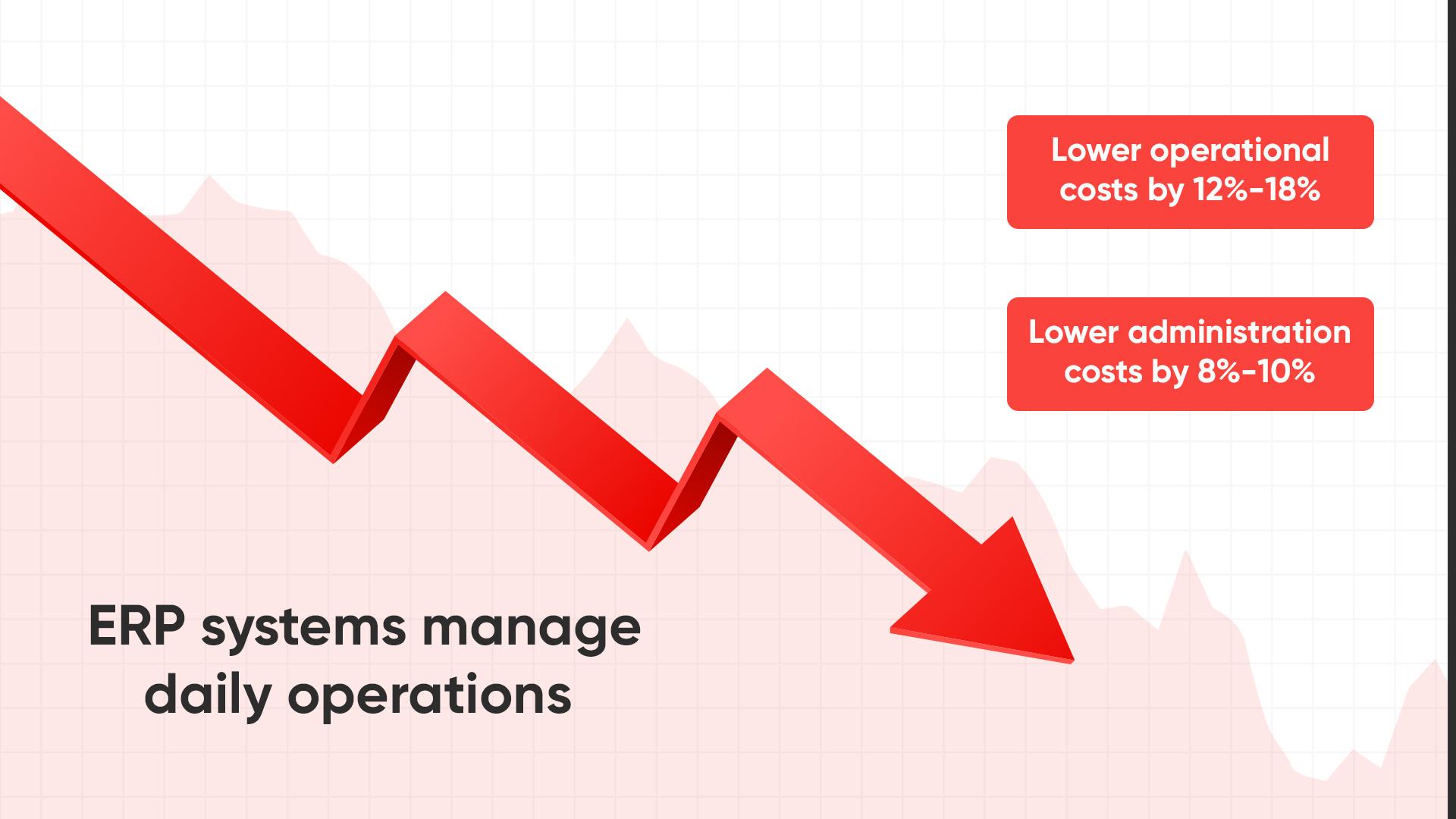Enterprise resource planning (ERP) solution is a key prerequisite for every business process.
According to a survey, 88% of companies have found their ERP implementations as a drastic failure!
But the question is, Why?

Earlier ERP systems were planned merely for large-scale manufacturing companies for maintaining their processes at ease. However, now, ERP systems are essential for all types of organisations
What is an ERP Implementation?
ERP implementation represents the end-to-end process of:
- Collecting business requirements
- Determining the right software platform
- Configuring the integrations
- Migrating legacy data
- And finally, deploying the new ERP system
However, ERP systems require regular updates and maintenance to ensure they function seamlessly. It focuses on successful change management by assuring that user needs are considered at each stage and are trained in how to use the system.
” On one hand, a properly executed ERP system can lower operational cost by minimum 12-18%% and administration costs by minimum 8-10%. “

” On the other hand, up to 50% of ERP implementations fail the first time, around 64% of ERP projects go over budget, and 30% take longer than expected.This disrupts the business operations and of course, leads to a big loss! “
Example of failed ERP Implementation
Conceivably one of the famous ERP implementation failures was that of “Hershey’s Chocolate” in 1999.
The company rushed to deploy its ERP implementation period in 30 months rather than the suggested 48 months due to the looming Y2K panic.
As a result, the company’s various departments clashed with one another, resulting in failed data migration, systems testing, and training.
In the end, Hershey’s horrid problems prevented it from delivering $100 million worth of chocolates (despite having that product in their inventory) for Halloween that year and caused the stock to dip 8 percent.
The disastrous failure of the project was due to poor planning which caused the business to develop software that would “not be fit for purpose in the emerging digital world in which it operated.”
Common mistakes you should avoid for successful ERP implementation
Mistake#1: Investing Without Research and a Strategy
Many businesses don’t spend enough time in the planning stage.
They often underestimate the time and resources required to implement a new ERP solution.
Thus, failing to identify critical issues with their processes before migrating to a new ERP solution.
Best Practice – ERP implementation is about change – it’s about optimizing, automating, and streamlining business processes.
Thus, map out the goals of the business with the ERP system, analyze end-to-end business architecture and re-engineer processes to create a seamless integration from the customer to the back office.
Mistake#2: Poor data strategy
Data plays a crucial role in helping you make intelligent decisions. You need to analyze how it can be aggregated, unlocked, and aligned with the new ERP system. Thus, vague or incorrect data, won’t provide value in decision-making.
Best Practice – Plan how to integrate data from the ERP system to provide a complete view of business processes.
Mistake#3: Not putting the business in the driver’s seat
If you’re trying to digitize the ERP project, you’re doing it wrong! An ERP project drives innovation and creates new revenue opportunities for the business.
This is why an ERP project should never be led by technologists; it should always be led by the company.
Best Practice – Involve the business leaders or managers in the process. Encourage them to identify pain points, prioritize areas that can be improved, and create an achievable wish list.
Mistake#4: Not having a maintenance plan
To function optimally, ERP systems need proper maintenance. A maintenance strategy for the ERP systems ensures that users apprehend how to maintain and improve the ERP system on a regular basis.
Best Practice – Setting up a maintenance plan to avoid any extra cost or loss of productivity to the company due to the ERP system.

Make your ERP Implementation a SUCCESS with Stratefix Consulting
The ERP implementation process can be a tedious task at first glance.
Fortunately, the experts at Stratefix Consulting can help you overcome ERP implementation challenges efficiently!
We offer companies an all-in-one platform that helps speed up software adoption through training, onboarding flows, and on-screen guidance.
Let us help you maximise the benefits of new software by boosting employee productivity through automation today!







